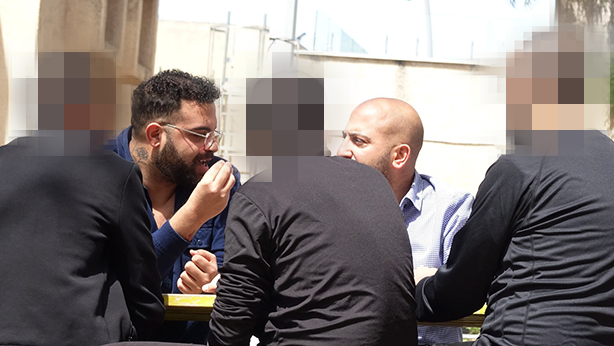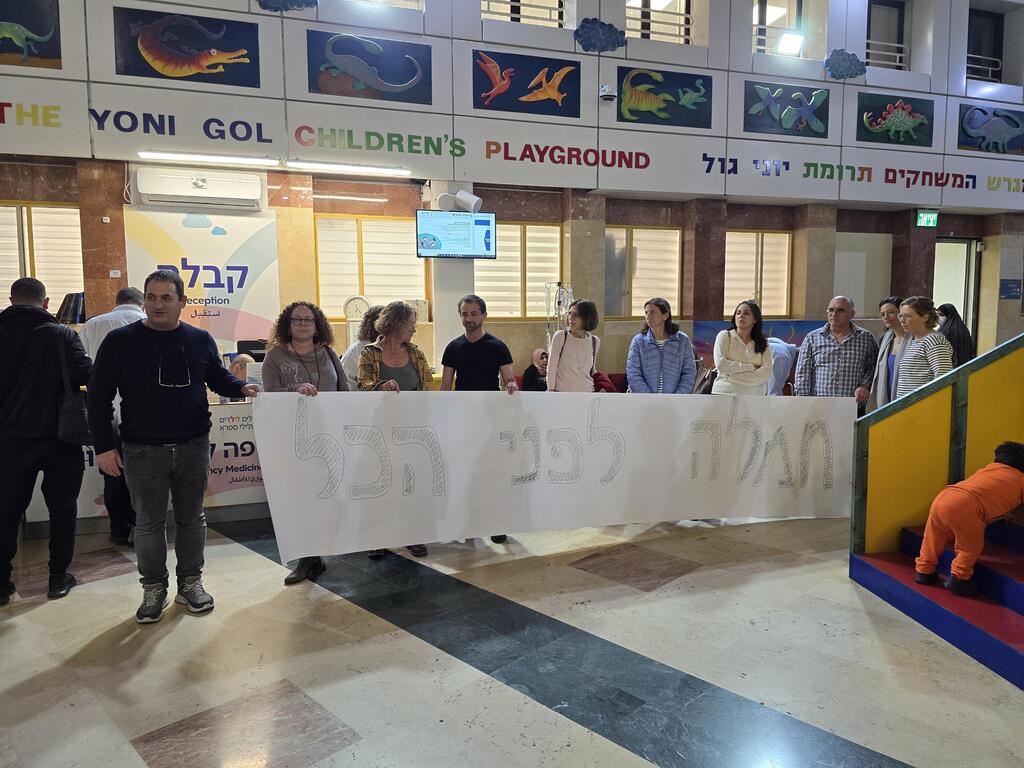Since October 7, three men from Gaza, Ahmed, Mohammed and Joseph (not their real names), have been worried. Their children are getting medical treatment at the Sheba Medical Center in Israel, and last week they were given the news that they were afraid of hearing: They have to go back to Gaza.
"I'd rather they kill me here and not go back to Gaza," said Ahmed, the father of one of the children being treated. Due to the efforts of the Physicians for Human Rights organization and Ynet's reports, the High Court stopped the return order to return to Gaza issued to the children and their families, as well as to other cancer patients from East Jerusalem.
Ahmed is now ready to become an Israeli citizen. "Life in Gaza isn't good. We're not happy. We left our families and we don't want to go back to the difficult life in Gaza," he said. He also spoke about how he felt after getting the news about going back to Gaza. "I was fasting and couldn't eat afterwards. I told them I'm not going to Gaza to die. We'd love to stay here forever, but it's not possible," he said. Joseph, another father, added: "The Israeli army is going to go into Rafah. Let us stay here until everything is over. Then we can go back to our lives in Gaza. Our children still need medical help."
The Palestinian Authority arranges for people from Gaza to get medical treatment in Israel. Ahmed, Mohammed and Joseph are all grateful for the medical team in Israel. "Despite all the chaos, the doctors were very professional," one of the fathers said.
This is what happened behind the scenes. The families from Gaza were told they had to leave on Sunday, about a week and a half ago. Then that decision was put on hold, until they were told again last Wednesday that they had to leave. But a few hours later, they were told that the decision was put on hold again.
Mohammed described how he felt when he was told he had to leave: "I felt choked. It was tough. My parents are in southern Gaza and some of my family is in the north. Where can I go with all the bombings and the war going on?" He added: "They want to move us from a safe place to a war zone. This isn't right. We have nothing to do with this war. Let us leave after there is a cease-fire."
Two of these individuals have spent more than three years in Israel, with periods of coming and going, and one of them has been moving between Gaza and Israel for over five years. As they describe it, the reality of life in the border area between Gaza and Israel is especially challenging.
"Every person in Gaza prays for a chance to live and earn a living in Israel. When we left Gaza for Israel, we felt a sense of relief, like we could finally breathe," Joseph says. Mohammed echoes this sentiment: "We want to live. Life in Gaza is difficult in so many ways – education, health, employment. I completed my accounting studies but couldn't find a job. Can you imagine how many others are in the same situation?"
When asked what he would say to Israelis who might fear that they or their family members could harm Israelis, despite receiving medical treatment in Israel, Mohammed responds that "not everyone is involved in the extreme actions of Hamas. We're peace-loving people. Why should we pay the price for what Hamas does? We came here legally. What do the sick have to do with all this?"
"Every sick Gazan hopes to be transferred to Israel for treatment by the best doctors. Of the two million Gazans living in Gaza, maybe only 20% are associated with Hamas. The rest of us just want to live," according to Joseph.
They understand that many Israelis may have lost trust in them after the events of October 7, especially when those who have helped Gazans get treatment in Israel were harmed or kidnapped, such as Oded Lifshitz, 83, who was kidnapped into Gaza.
"Wherever you look, you'll find people who resort to violence. But not all people are the same or think the same way," Mohammed says.
"In Israel, they think that Gaza is full of ignorant and uneducated people, but that's not true," he adds. "The extremists are usually the ones highlighted. It's crucial to understand that there's no future or hope in Gaza. Hamas is the main employer. Most young people who join Hamas do so because they see it as their only option to earn money since there are no jobs."
Reflecting on the chaos that began on October 7, Joseph says: "People were disturbed. It simply devastated us. Why? What did those young people or adults in Israel do to deserve such a thing?"




